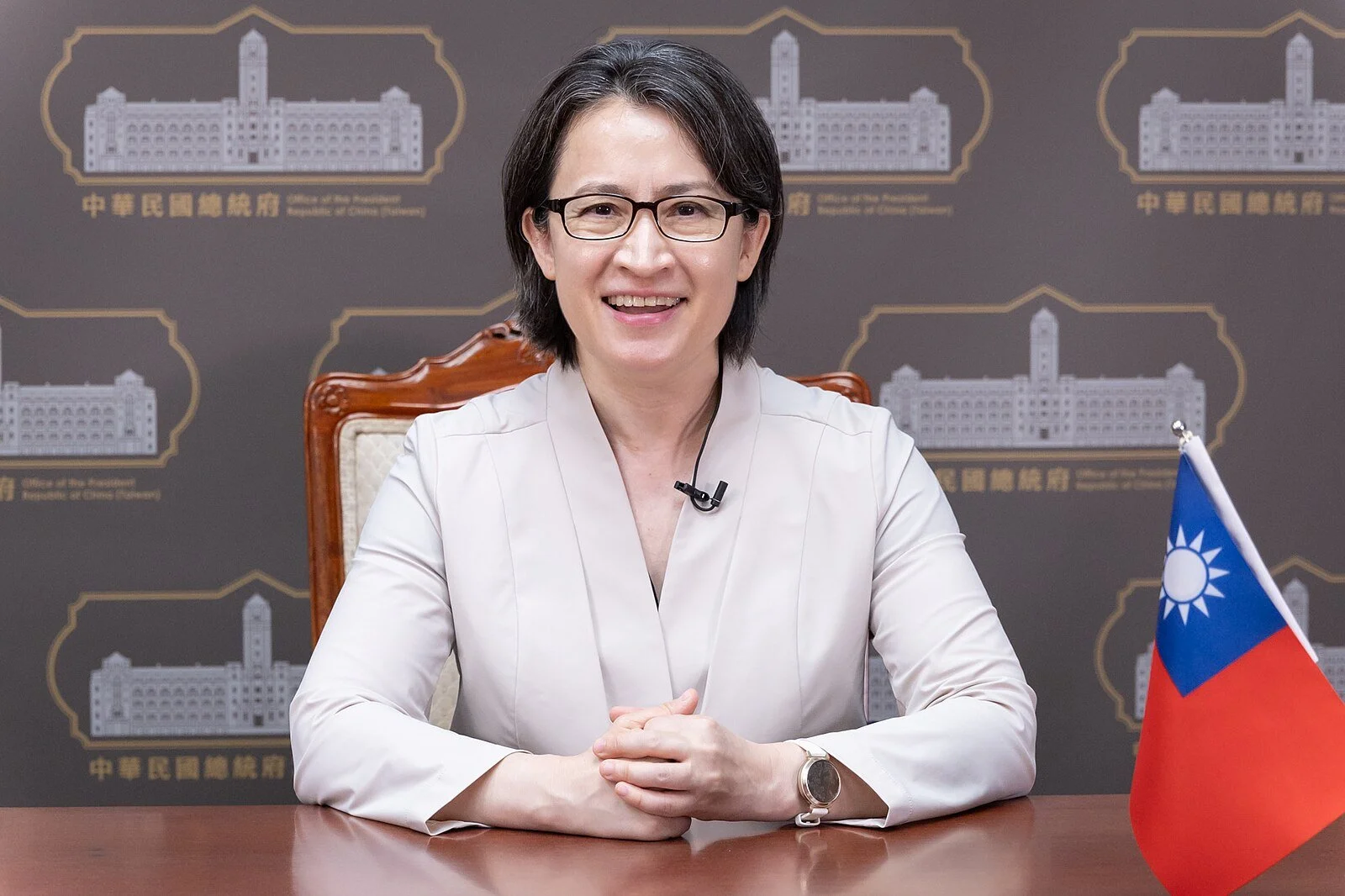“Taiwan is not alone,” Taiwanese Vice President Appeals to Europe
Taiwanese Vice President Hsiao Bi-khim made a rare speech at the European Parliament on November 7 (Wikimedia Commons).
Hsiao Bi-khim, Taiwan’s vice president, made a surprise and rare visit to Brussels on November 7 to speak at a meeting of European Parliament lawmakers. According to Reuters, it is exceedingly rare for a senior Taiwanese official to make such a substantive visit to Europe. Hsiao, who spoke at the Inter-Parliamentary Alliance on China’s annual summit, made the case for greater participation by Taiwan in international affairs. She appealed to Europe’s historical role in defending democracies, saying, “Europe has defended freedom under fire. And Taiwan has defended democracy under pressure.”
Vice President Hsiao is a member of the Democratic Progressive Party (DPP), which is Taiwan’s pro-independence party, according to CNBC. Before being named as a vice-presidential candidate in 2021, Hsiao was Taiwan’s de-facto ambassador to the United States, and has very close ties with Washington. China, of course, is not a fan of Hsiao. Beijing has twice sanctioned Hsiao, and called her an “independence diehard” and a “separatist” due to her fierce support of Taiwan’s independence from the mainland.
The tense situation between Beijing and Taipei has isolated Taiwan on the global stage, per Reuters; within Europe, Taiwan only has official diplomatic ties with the Vatican. Other nations have to be much more careful in interacting with the island nation at risk of upsetting China. Despite the need to walk on eggshells, Britain, France, Poland, and other European nations have allowed limited visits and discussion with Taiwanese officials, per Reuters. However, Vice President Hsiao’s speech at the European Parliament is a dramatic pivot from the limited diplomacy practiced thus far.
China’s reaction to Hsiao’s visit was not surprising. China’s Mission to the EU released a press briefing on November 8, saying that Hsiao’s visit “gravely violates the one-China principle, constitutes serious interference in China’s internal affairs, and severely undermines political mutual trust between China and the EU.” Bloomberg reports that, on November 10, Foreign Ministry spokesman Lin Jian said that China had “lodged serious protests with the European Parliament” on Vice President Hsiao’s activities. Lin continued that Hsiao’s calls for greater Taiwanese recognition and support would “never change the inevitability of China’s reunification.”
Hsiao’s visit to Europe comes as the EU grows increasingly concerned about China’s restrictive trade policies, specifically over rare-earth magnets. On October 9, China’s Ministry of Commerce announced a host of new rare-earth mineral export controls. The most restrictive were new controls on extraterritorial trade of any product containing Chinese rare earths. As part of this change, the exporter must receive a permit from the Ministry of Commerce, even if the trade doesn’t cross Chinese borders. These new restrictions were suspended for one year following Chinese President Xi Jinping’s meeting with U.S. President Donald Trump on the sidelines of the APEC Summit in South Korea. However, Bloomberg reports that Europe remains worried about China’s tightening grip on their rare-earth monopoly.
Pro-independence Taiwanese have welcomed Hsiao’s European visit, considering it a sign of Taiwan’s growing role in the international world. Wang Jung-jen, a professor at National Cheng Kung University’s Department of Political Science, writes in the Taipei Times that Hsiao’s speech was “unprecedented and a diplomatic milestone for Taiwan.” Wang continues by arguing that her visit works to establish a new diplomatic precedent of Taiwanese presence in Europe, calling it a “rightful step forward.” Responding to Beijing’s fierce reaction to the vice president’s speech, Wang says, “If we stop at every decision to ask, ‘will this upset Beijing?’, we will never step out of China’s shadow.”
Vice President Hsiao’s speech at the European Parliament charts a new path forward for Taiwan. As global tensions heat up, Taipei is making moves to establish official relationships with democratic allies around the world. In the face of harsh Chinese rhetoric and with a new diplomatic dawn on the horizon, Hsiao argued that “Taiwan is not alone.”

